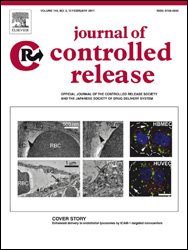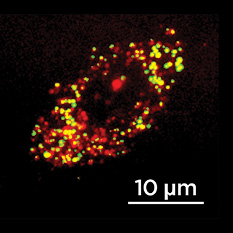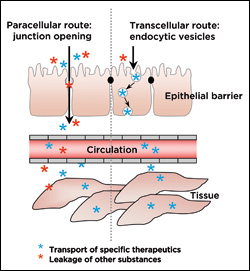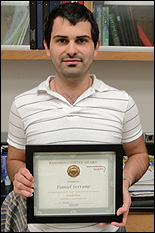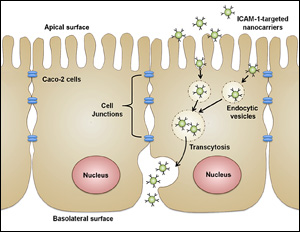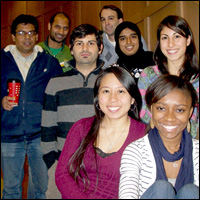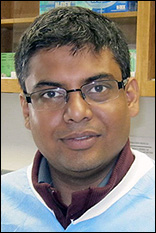News Story
Hsu Presents Work on Rare Lysosomal Disorder
Fischell Department of Bioengineering (BioE) graduate student Janet Hsu was awarded a scholarship from the World Organization for Rare Lysosomal Disorders (WORLD) to attend its 8th annual meeting in San Diego, Ca. in February 2012. Her award-winning abstract, titled “Enhanced Kidney and Heart Delivery of α-Galactosidase by Modulating Enzyme Load and Carrier Bulk-Concentration of ICAM-1-Targeted Nanocarriers,” was one of only ten that were selected for this honor. Hsu is advised by BioE assistant professor Silvia Muro (joint, Institute for Biotechnology and Bioscience Research).
Hsu's research focuses on Fabry disease, a lysosomal storage disorder that results in a clinical condition affecting multiple tissues. Lysosomes are organ-like intracellular structures that contain enzymes necessary for metabolizing the cell’s food sources, such as lipids, carbohydrates, and other proteins. Fabry disease results when gene mutations affect an enzyme, α-galactosidase A (α-Gal), involved in the metabolism of certain glycolipids in the body.
Clinical enzyme replacement therapy (ERT) by injection of recombinant α-Gal somewhat improves the disease's outcome, but has shown limited effect on the vascular pathology that is a hallmark of its most life-threatening symptoms.
Previously, Hsu, Muro and their collaborators reported on a strategy to improve vascular delivery of α-Gal. To achieve this, they loaded α-Gal in polymer nanocarriers that were targeted to intercellular adhesion molecule 1 (ICAM-1), a protein expressed on the endothelium throughout the vasculature. This novel delivery system enhanced enzyme delivery in mice and biochemical effects in cell models. The work described in Hsu's abstract for the WORLD scholarship explored the impact of several nanocarrier design parameters in the biodistribution and final enzyme delivery in mice, to optimize therapeutic doses for future pre-clinical testing.
Story adapted from the original by and provided courtesy of Dr. Debra L. Weinstein, Research Development Specialist, Institute for Bioscience and Biotechnology Research.
Published February 22, 2012
